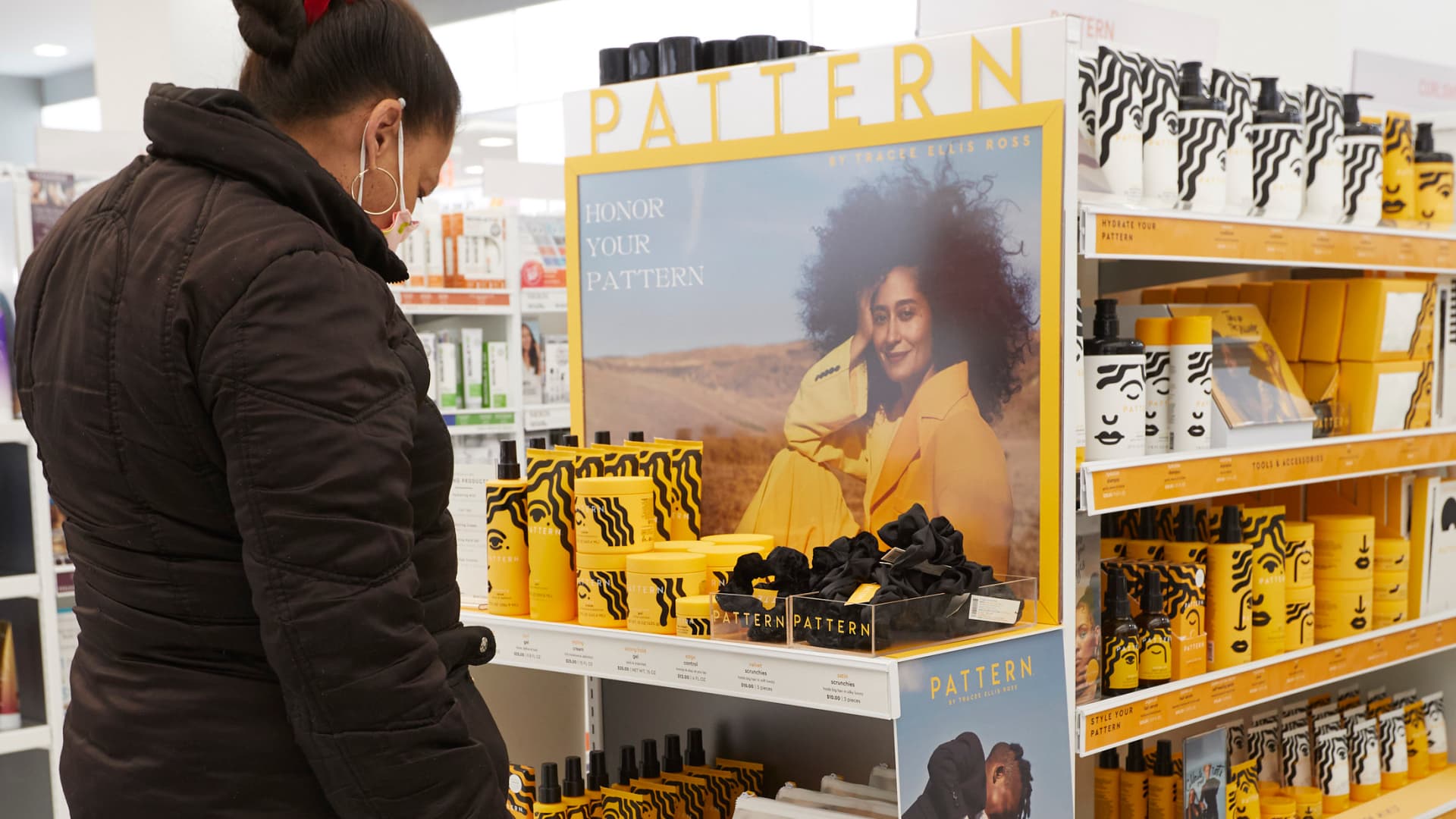Major beauty retailers are boosting small, minority-owned businesses as Black female entrepreneurship helps bridge an employment gap.
As of last year, 17% of Black women in the U.S. were in the process of starting or running new businesses, according to the Harvard Business Review. That outpaces the 15% of white men and the 10% of white women who reported the same.
Yet, only 3% of Black women reported running mature businesses.
And the traditional workforce unemployment rate remains high among Black women, at 5.5% in March, compared with overall U.S. unemployment of 3.6%, according to the Labor Department. The unemployment rate among Hispanic women during the same period was 4.2%. For white women it was 2.8%.
In an effort to assist small businesses and advance Black entrepreneurship opportunities, major retailers such as Ulta, Sephora and Target have created start-up incubators and diversity programs, providing mentorship, financial support and new business opportunities.
This month, Ulta Beauty partnered with incubator Rare Beauty Brands and Black Girl Ventures, a foundation that funds and scales Black- and Brown-founded businesses, on the group’s second pitch competition for minority-owned beauty start-ups. The competition is a live, crowdfunded event where Rare Beauty Brands creates a three-minute pitch in hopes of elevating their businesses.
The first-place winner will receive accounting consultations, $10,000 and a spot on Ulta’s product shelves for at least six months. Winners are picked based on audience votes. Voting between the seven finalists closed on April 14. The winner will be announced next week.
The competition also promises the chance at key mentoring. Black Girl Ventures offers coaching to applicants prior to the pitch, and Rare Beauty works with business owners after their win.
“We already know that in the beauty industry, Black women consume more than their fair share of beauty products and yet, funding for Black female entrepreneurs is dramatically underdeveloped relative to where it should be,” said Rare Beauty CEO Chris Hobson. “This is less about adding brand value to us and really more about righting a wrong and a way to say ‘Thank you’ to a big chunk of our consumers and try and be part of the solution here.”
Kim Roxie, founder and CEO of Lamik Beauty, the first Black-owned clean beauty brand to be featured at Ulta, won last year’s Black Girl Ventures pitch competition. She said the partnership with Rare Beauty was transformative for her business.
“It was game-changing for me as a founder, and it was game-changing for my company,” Roxie told CNBC. “They allowed me to utilize their team in a way that I would have had to try to hire all those different people and it would have been out of my reach.”
“They sort of subbed in and filled in that gap for me.”
Ulta Beauty has pledged to spend $50 million this year on diversity initiatives, including the launch of an accelerated program to support Black founders and putting money toward marketing their brands.
In February, the company said it is roughly halfway toward reaching a goal of 15% minority representation on shelves as part of its broader diversity initiatives.
Scaling brands
Sephora runs similar accelerated programs for entrepreneurs, aimed at improving representation of brands from BIPOC — Black, Indigenous and people of color — founders. The company’s Accelerate program, which launched five years ago, received more than 600 applications from small business owners this year.
“The Accelerate program serves as a springboard for nascent brands to become visible, viable, stable, and financially solvent,” said Rauvan Dulay, vice president of global merchandising, business development and strategy for Sephora. “Business growth in communities of color creates jobs, opportunity, stability and generational wealth — having the potential for decades of positive impact.”
Big-box retailer Target launched Target Takeoff in 2016 with similar objectives but aimed more at mature consumer packaged goods companies. Five years later, the company added Forward Founders to its portfolio, an incubator initiative designed to engage Black entrepreneurs much earlier in their start-up journeys by helping them navigate critical stages, such as ideation, product development and scaling to serve mass retail, according to the company.
The incubator announced its second cohort in January.
“Target has a longstanding, successful track-record of Accelerator programs and we saw an opportunity to do more, and think differently about how we support underrepresented entrepreneurs,” the company said in a statement to CNBC.
Target’s Forward Founders program received about four times the number of applicants it anticipated this year, the company said. It tripled the size of the annual cohort and created an all-new virtual program so all applicants could benefit.
— CNBC’s Melissa Repko contributed to this report.
